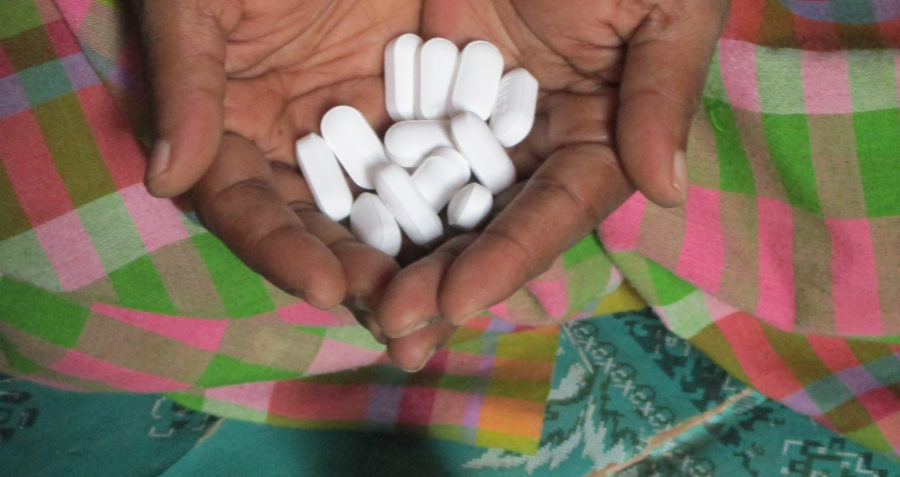Making the case for prison reform in Myanmar
 © Pan Nu, Ma New & Hter Thakhin/Frontline AIDS/PhotoVoice/2018
© Pan Nu, Ma New & Hter Thakhin/Frontline AIDS/PhotoVoice/2018
PITCH partners in Southeast Asia are advocating for improved prison conditions as part of a more comprehensive HIV response.
Prison conditions in Myanmar have long been an area of concern for organisations working with populations that are vulnerable to HIV such as people who use drugs and sex workers. Overcrowding in jails is common, health care largely inadequate and persistent discrimination is shown towards marginalised groups by prison officials and other prisoners.
A landmark new report published last month by the Assistance Association for Political Prisoners (AAPP), with the support of the PITCH programme, calls for urgent reform of Myanmar’s prison system. The report was developed following a series of interviews with key populations about the problems they experienced while incarcerated.
One former inmate from Mandalay prison reported that prisoners living with HIV, TB and hepatitis C are put together, resulting in cross infections and worsening health conditions. Others talked of the lack of antiretroviral therapy, of no proper treatment programme for people who use drugs and how, in an act of stigmatisation, female sex workers are often assigned to clean the prison toilets.
Prison overcrowding worsens during pandemic
In some prisons in Myanmar, the percentage of drug-related offenders is as high as 70-80% according to the United Nations Office on Drugs and Crime. This is despite the National Drug Control Policy recommendation to tackle the country’s drugs issue with health- and human rights-focused responses.
In the early days of the COVID-19 crisis, AAPP spoke out and asked the authorities to reduce prison overcrowding in order to prevent the spread of coronavirus. The Drug Policy Advocacy Group – which Alliance Myanmar, AAPP and some PITCH partners are members of – issued a set of recommendations about who should be released as priority and the precautionary measures that should be taken in prisons and labour camps. After these actions, the President’s traditional New Year amnesty happened and 25,000 prisoners were released. The preventive measures in prisons were also taken more carefully than before.
Despite the amnesty, the prisons quickly become overcrowded again, in part because many people who use drugs are arrested on a daily basis. The situation has been exacerbated during the pandemic with hundreds being arrested and imprisoned under the Prevention and Control of Communicable Diseases Law and other penal code provisions. Due to several restrictions, PITCH partners’ legal staff have struggled to gain access to key populations who have been detained or to see that they receive a fair trial.
The way forward
The AAPP’s Prison Reform with Key Populations report is quick to highlight that the Prisons Act in Myanmar is completely outdated as both it and the Jail Manual, which sets out prison management rules, date back to the late 19th century and British colonial rule. Reform is long overdue.
Recommendations in the report focus on the need for a review of legislation that currently targets marginalised groups – such as the Suppression of Prostitution Act – as well as guidelines tailored to the individual needs of each key population.
These range from ensuring the provision of methadone for people who use drugs from the moment of being taken into police custody or detention, to the regular provision of antiretroviral therapy for people living with HIV, to arranging separate confinement of LGBT prisoners for safety reasons.
Other recommendations include the establishment of a secure complaints mechanism for prisoners and regular prison inspection visits by human rights organisations.
With the participation of PITCH partners including Alliance Myanmar, MPG, AMA, SWiM and MMTN, the Prison Reform Coalition will now continue to use the report to advocate for action on ongoing human rights violations in prisons with MPs and candidates in Myanmar’s upcoming general election.
The Partnership to Inspire, Transform and Connect the HIV response (PITCH) is a joint partnership between Aidsfonds, Frontline AIDS and the Netherlands Ministry of Foreign Affairs.
Tags
Harm reductionHIV preventionHuman rights

